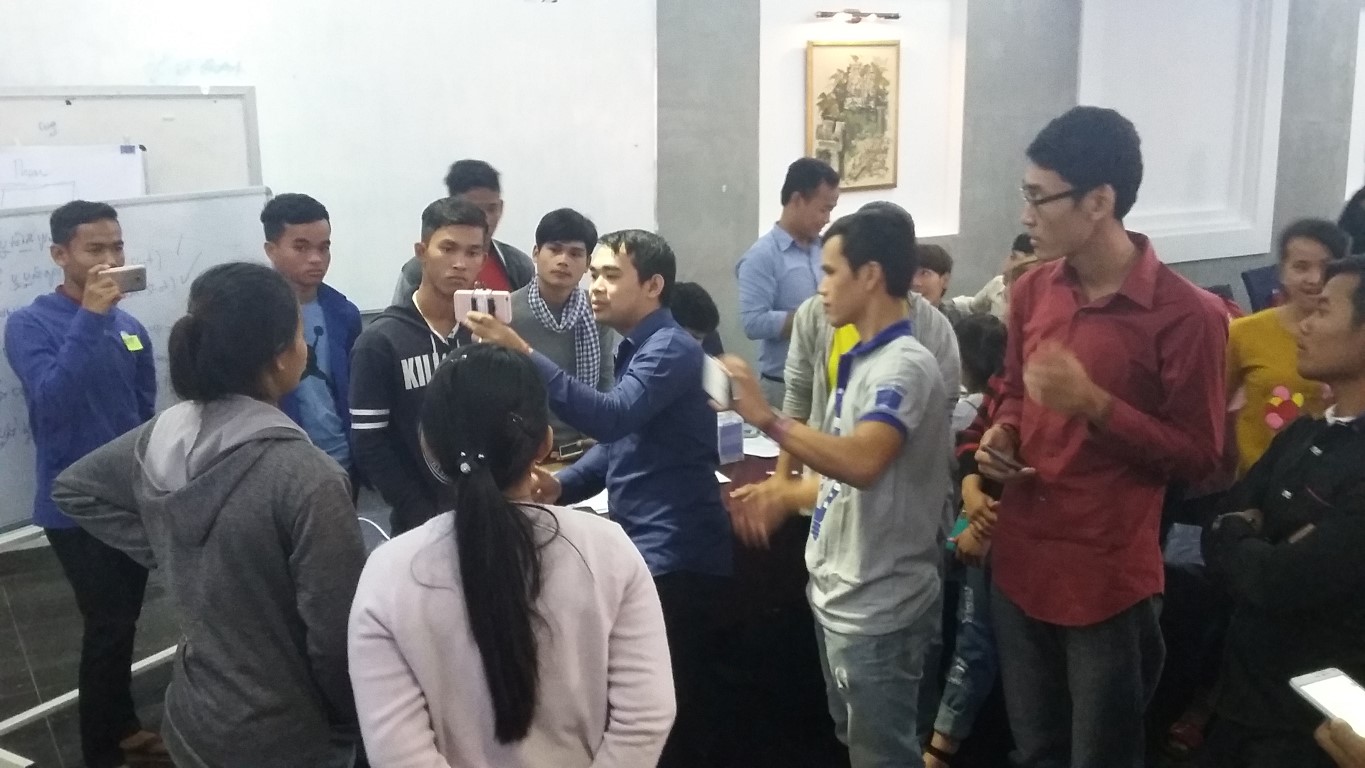With the financial support of European Union through DanChurchAid Cambodia (DCA Cambodia), the Cambodian Center for Independent Media (CCIM) organized a two-day training on access to information (A2I) for CCIM’s media partners who are members of the Media Professionals for Freedom of Expression (MEPRO), a nation-wide network of provincial broadcasters, on June 13-14, 2017.
Although the Ministry of Information has worked with diverse stakeholders including civil society groups, media institutions and private sectors to improve the A2I draft law, not many of media institutions are active and well informed how significant the draft law is and how they can take advantage of the draft law to promote transparency and freedom of expression. In response to this challenge, CCIM invited at least 15 of MEPRO members to join the training to raise a comprehensive understanding of access to information, strengthen existing cooperation between CCIM and MEPRO and address challenges faced by MEPRO to promote access to A2I.
First, there are lack of comprehensive understanding of A2I draft law. A term of “access to information” is sometimes misunderstood that only journalists or reporters can access to information. CCIM Executive Director Mr. Pa Ngoun Teang, who directly trained representatives of MEPRO, pointed out that access to information refers to the right of the public to request concerning authorities for public information needed for the interests of their community. People, as Teang claimed, are able to use the requested information as references to write a research or hold authorities accountable for their job implementation. To monitor national budget allocated for local development, for example, requires comprehensive understanding of the process in which access to information is critically important.
Second, sustaining good cooperation with MePros is CCIM’s long-term strategy not just for A2I project, but freedom of expression and access to independent information. Sustainable cooperation, however, must be assured by financial sustainability. While CCIM has no policy to support its MEPRO financially, CCIM is committed to providing a wide range of technical assistance ranging from radio program production, program management, networking to charming marketing strategies to compete for market share.
Samrith Tona, a station director of Kratie-based Samleng Satrey FM 89.5 MHz (Voice of Women), said that the technical assistance CCIM has given him is extremely useful for our daily operation. “Our weekday programs focus on social issues, such as wild life protection, Mekong dolphin protection, women and children’s rights,” said Tona adding that “my successful job implementation is partly contributed by CCIM.”
But Tona expressed his concern related to the price of his broadcasting services which is relatively more expensive comparing to his local competitors. Tona said that not allowing advertisement on cigarettes and all forms of alcohol helps promote the value of his radio station, but that social value has to be compensated by raising price of general commercial advertisement spots. “People always tend to look for cheap things and pay less attention to social responsibility and value.” said Tona.
The final and the most important challenge faced by MEPRO members is the restriction on broadcasting contents. Although CCIM’s provincial radio stations are purely private radio stations, their broadcasting contents are closely monitored by Provincial Department of Information. Political pressure sometimes does not come directly from provincial level, but from the national level.
A station director of Phnom Penh-based Sweet FM, who owns up to 13 radio stations nationwide, Hour Hemvichet, raised an interesting case happening to his radio station in Stung Treng when Radio Free Asia (RFA) broadcasting in Lao was rejected after contacting his radio station to buy airing time. Vichet revealed “RFA in Lao language contacted us to buy our free time slot to broadcast in Lao language so that some indigenous people and Lao people living in Stung Treng of Cambodia and Pak Se of Laos can have more access to news. We were instructed not to do so.” “RFA offered us a very good price and we knew they manage to run a long-term program,” Vichet recalled adding “unfortunately, we can’t sell them our airing time.” A simple reason to reject, as Vichet argued, is that station does not have free time slot to sell. Vichet, however, declined to explicitly said who instructed him not to sell airing time to RFA.
While A2I is still in progress, it is expected to be finalized by the end of 2017. Nobody knows how much the draft law has been improved. Mr. Teang, however, encouraged all MEPRO members to keep working hard for common interests rather than aiming for profit only. High price, according to Teang, is not always a challenge, given the high standard and quality. “I fully understand that market competition is fierce and survival must be guaranteed by financial sustainability, but at the same time we have to think of what we can contribute to society,” Teang explained adding “we live in the present and work toward the future and that is how we build our social values and our social values will pay.”
Chiv You Meng, a representative of DCA Cambodia shared the same concept with Teang saying that social responsibility does not necessarily for big companies, but for all business organizations irrespective of operational scale. Meng is optimistic that a value of a radio station is built only if that radio station serves common interests of the public. Once the value is built, the popularity increases and that radio station will eventually sustain its operation. The training was successful and CCIM will bring all of the challenges addressed by MEPRO to the next round of discussion with A2I technical working group. (Sek Sophal)


